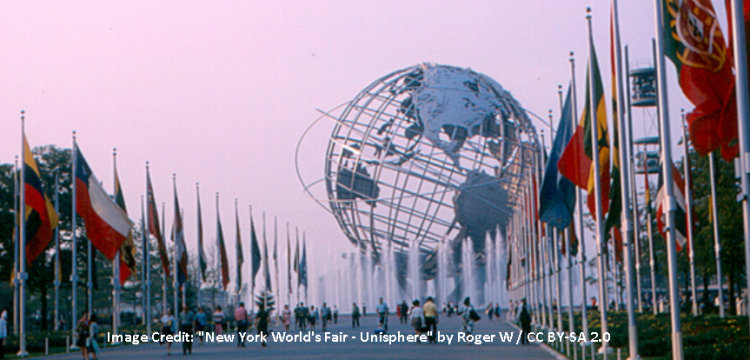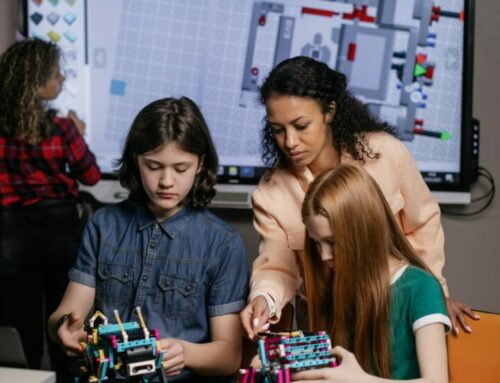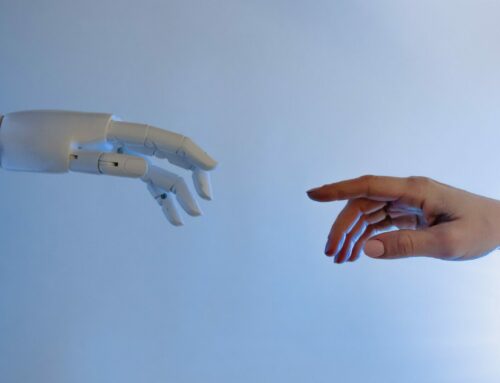Globalisation requires us to foster global citizens
Patrick Blessinger and Enakshi Sengupta
St. John’s University (NYC), USA and American University of Kurdistan
Education and lifelong learning hold the key to addressing many of the world’s problems. Of course, education alone is not a sufficient condition for resolving these problems, but it is a necessary one, for it is within the fertile soil of humanistic education, grounded in democratic principles and universal human rights, that the seeds of political, economic, social and technological development can take root and grow.
Authentic humanistic education provides the catalyst for summoning forth the best about humans – their innate drive to learn and create, their capacity for empathy and compassion towards others and their remarkable ability to come together to put in place humane policies and rules by which to govern society and relations between nations.
In short, education and lifelong learning provide hope in humankind’s ability to meet the challenges of the modern world.
The human ability to come together to resolve conflict and war, to reduce social and economic disparities and injustices and to reduce the damaging effects that human action can have on the global ecology should give hope that the world is, by-and-large, steadily moving in the right direction.
Although there are still tremendous problems with poverty, illiteracy and injustice that must be resolved, the world has nonetheless made great strides in the past few hundred years.
In support of the United Nations Sustainable Development Goals, we (Patrick Blessinger and Enakshi Sengupta), along with several refugee scholars and educators, present a set of research studies in the forthcoming book series, Refugee Education, wherein we discuss how educational and humanitarian organisations are helping to address the refugee crisis around the world.
Humane values in education
Education grounded in human rights, democratic principles and an ethics of care is vital to fostering students as global citizens, which is an important aspect of education in a highly globalised world. According to UNESCO, “global citizenship refers to a sense of belonging to a broader community and common humanity. It emphasises political, economic, social and cultural interdependency and interconnectedness between the local, the national and the global.”
UNESCO emphasises the following core elements for global citizenship education:
- An understanding of global issues, rights and responsibilities.
- An understanding of the interconnectedness and interdependencies between global, national and local systems.
- A tolerance for different belief systems and an understanding of how they influence political, economic and socio-cultural perceptions about the world and human interactions.
- An appreciation for diverse identities and ways of life that define humanity (for example, race, ethnicity, sex, gender, class, culture, language, religion, age, ability).
- The development of knowledge and skills to critically analyse inequities and injustices based on those same identifying characteristics.
- The development of the knowledge and skills needed for civic and global literacy (for example, fairness, cooperation, peace building and personal and social responsibility).
- The development of the knowledge and skills needed to contribute to the world as informed and engaged global citizens.
Nel Noddings et al, in Educating Citizens for Global Awareness, raises several concerns about globalisation and the tendency to define globalisation in mainly economic terms.
For instance, Noddings states: “…globalisation’s emphasis on economic growth has led to practices that threaten the physical environment…”. As such, one must take a holistic and comprehensive approach to understanding the impact of globalisation and to better understand how best to address the major problems confronting a globalised world.
As Noddings points out, globalisation is not just about economic growth but also about cultural diversity, linguistic diversity, religious diversity, ecological and biodiversity as well as racial and gender diversity. In short, globalisation is about all those different ways that define humanity and life on the planet.
As such, globalisation requires that we think about justice and fairness in all its forms: political, economic, social and ecological. Furthermore, globalisation also requires that we think not only about human rights, but also about environmental and animal rights.
As a giant step forward in this direction, the UN’s Sustainable Development Goals Report provides a road map and framework for identifying 17 critical goals for creating a more just and sustainable world.
With respect to education for global citizenry, the focus of Sustainable Development Goal four is to promote more equitable access to education, lifelong learning opportunities for all and the development of the higher order knowledge and skills needed to meet the demands of contemporary society.
It is clear that globalisation has not benefited all equally or equitably. Many nations are still confronted with high infant mortality rates, poor or non-existent healthcare, extreme worker exploitation and child labour, high illiteracy rates, poor sanitation and pollution, starvation and malnutrition, displaced people, extreme violence and ecological destruction, among other problems.
In a highly interconnected globalised world, what happens in one country can easily spill over into other countries.
One example of this is the current refugee crisis. According to the United Nations High Commissioner for Refugees or UNHCR Population Statistics Database, there are more than 65 million displaced people around the world who have been forcibly driven from their homes due to war, extreme violence and the like. Of these displaced people, more than 20 million are refugees, about half of whom are under the age of 18.
Concerning refugee children, only half attend primary school and only a quarter attend secondary school. When it comes to higher education, only 1% attend a post-secondary institution. Each higher education institution has a social responsibility to help address this issue.
Finally, in addition to learning how to develop into good citizens of our home countries, it is also important to learn how to become caring, engaged global citizens to help make the world a better place for all. Learning how to think and live as global citizens is one of the top education priorities confronting the world. As the United Nations Sustainable Development Goals remind us, creating a more globally sustainable world starts with thinking like a global citizen.
Suggested Citation:
Blessinger, P. & Sengupta, E. (2017). Globalisation requires us to foster global citizens, Higher Education Tomorrow, Volume 4, Article 11, https://www.patrickblessinger.com/globalisation-requires-us-to-foster-global-citizens
Or
Blessinger, P. & Sengupta, E. (2017). Globalisation requires us to foster global citizens, University World News, http://www.universityworldnews.com/article.php?story=20171031125338516
Copyright © [2017] Patrick Blessinger and Enakshi Sengupta
Disclaimer
Opinions expressed in this article are those of the author, and as such do not necessarily represent the position(s) of other professionals or any institution.




